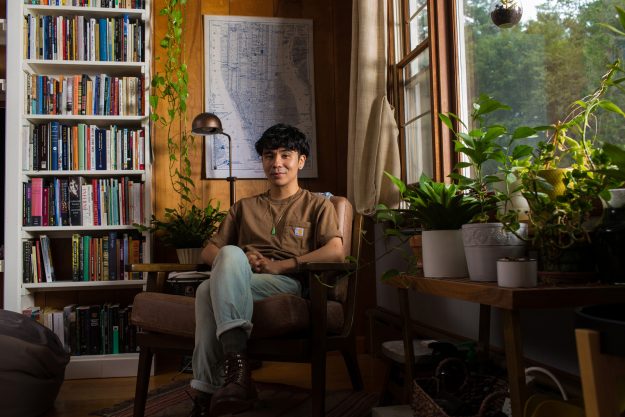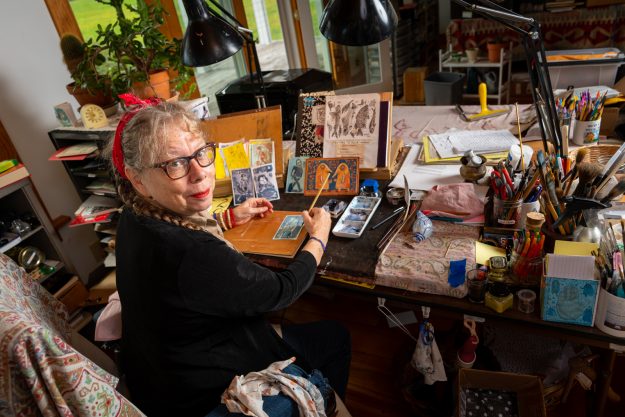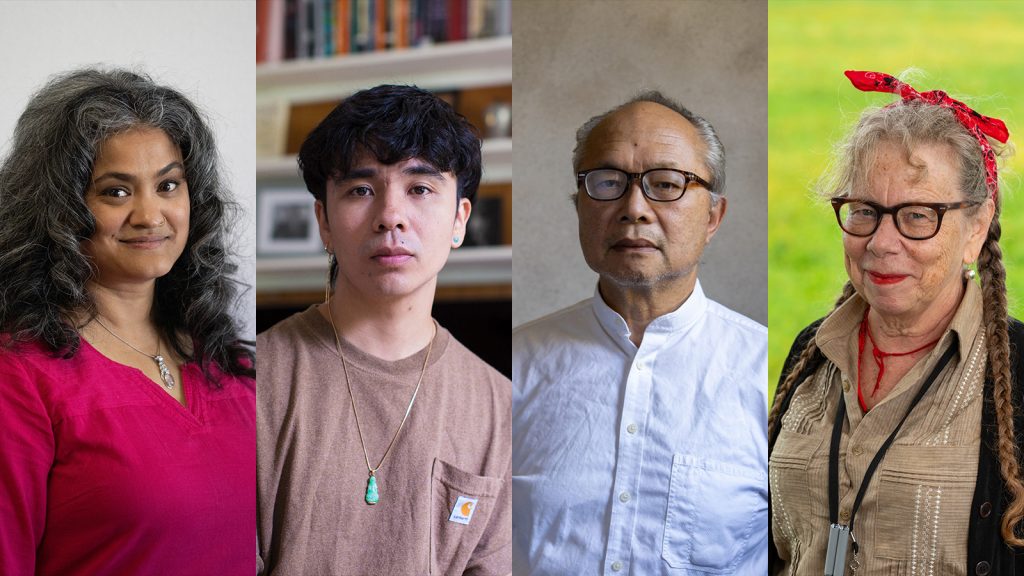Nothing is permanent, so everything is precious. Here’s a selection of some happenings—fleeting or otherwise—in the Buddhist world this week.
Buddhists Awarded MacArthur “Genius” Fellowship
The MacArthur Foundation announced the 2019 winners of its no-strings-attached $625,000 fellowship, known commonly as the MacArthur genius grant, and several Buddhist and Buddhism-inspired fellows made the list.

At the age of 30, Zen Buddhist poet and novelist Ocean Vuong was one of the youngest winners (alongside 30-year-old visual artist Cameron Rowland). Vuong, who was born in Vietnam and came to the United States as a refugee when he was 2, writes about the effects of war and exile with “tragic eloquence and clarity,” blending the “rhythm, cadences, and imagery of rural Vietnamese oral storytelling and folkloric traditions” with a “restless experimentation with the English language,” says the MacArthur Foundation. His latest book, On Earth We’re Briefly Gorgeous, is a New York Times bestseller and is a top contender for the 2019 National Book Award for Fiction. Vuong discussed his Buddhist influences, among other subjects, in a 2017 interview with Tricycle.

Attorney sujatha baliga was chosen as a grant recipient for her work in restorative justice, which encourages “constructive, rather than punitive or retributive, responses to wrongdoing.” Having grown up with a sexually abusive father, she knew early on that she wanted to become a prosecutor, according to a New York Times profile. But when she was an undergraduate student living abroad in India, she found herself struggling with her own anger. So she wrote a letter to His Holiness the Dalai Lama, saying, “Anger is killing me, but it motivates my work. How do you work on behalf of oppressed and abused people without anger as the motivating force?” A week later, she was invited to meet with the Dalai Lama, who advised her to start meditating and, as she recounts to the Times, “to align myself with my enemy; to consider opening my heart to them. I laughed out loud. I’m like: ‘I’m going to law school to lock those guys up! I’m not aligning myself with anybody.’ He pats me on the knee and says, ‘OK, just meditate.’” Eventually, she came to understand his advice and put it into action as the director of the Restorative Justice Project.

Cartoonist and educator Lynda Barry is credited with expanding the psychological depth of the graphic-novel format and for developing a curriculum that helps other people tap their creative potential. Her acclaimed 2002 work One! Hundred! Demons! was inspired by Rinzai Zen master Hakuin Ekaku’s work of the same name (sans exclamation points). In Tricycle’s Summer 2008 issue, Barry explained the influence Zen painting has had on her work.

Artist Mel Chin was named a MacArthur fellow for his ability to “call attention to complex social and environmental issues” and “engage people from diverse backgrounds,” the foundation writes. The Houston-based artist’s work, which spans a wide range of genres and mediums, often draws on Confucian and Buddhist philosophy and imagery (such as in his 2002 painting “Wheel of Death”).
Thieves Hit Hawaii’s Oldest Buddhist Temple
Two thieves recently robbed the oldest Buddhist temple in Hawaii after being warmly welcomed by the temple’s president, according to Hawaii News Now. The two men visited Hamakura Jodo Mission, a Pure Land temple run by the Buddhist Churches of America, and “pretended to be interested in learning about Buddhism and about the history of our church,” said temple treasurer Sandy Takahashi. “Our church president . . . gave them a tour [and] even gave them drinks because it was a hot day.” The pair then left, but returned an hour later to rob the place when no staff or parishioners were present. The next day the 85-year-old president found the mess left: The thieves allegedly took food and beverages, rifled through the temple, and dismantled and stole the temple’s security-camera system. They apparently failed to notice a secondary security camera, however, and were caught fleeing the scene. Staff took those images and posted them to social media, leading to the arrest of one of the individuals.
Takahashi told Hawaii News Now that the temple added the extra security because they have been targeted by thieves and vandals over the last year. “To see that these people steal from a sacred place is really heartbreaking,” Takahashi said. “We barely survive on donations and when something like this happens we really take a hit financially.” Last month, another group appeared in federal court in Georgia after allegedly stealing gold and other valuables from temples in multiple states.
Rep. Alexandria Ocasio-Cortez Goes Hunting for Tibetan Food
In a recent tweet, Democratic Rep. Alexandria Ocasio-Cortez said she had a “successful” momo hunt in Jackson Heights, a Queens neighborhood in her New York district that is home to a large community of Tibetan, Nepalese, and Bhutanese people. Momos are a type of dumpling from those regions.
Related: Celebrating the Tibetan New Year with Momos and More
“Jackson Heights never fails! We were successful in our Momo hunting last night. I had the Mokthuk [a dumpling soup] at Lhasa Fast Food,” she tweeted. This isn’t the first time AOC has shown her appreciation for her Himalayan constituents. In February of this year, AOC attended a local celebration for Losar, or Tibetan New Year.
Jackson Heights never fails! We were successful in our Momo hunting last night. I had the Mokthuk at Lhasa Fast Food 🥘🥟 https://t.co/7KCeBQAunC
— Alexandria Ocasio-Cortez (@AOC) September 30, 2019
Thank you for subscribing to Tricycle! As a nonprofit, we depend on readers like you to keep Buddhist teachings and practices widely available.
